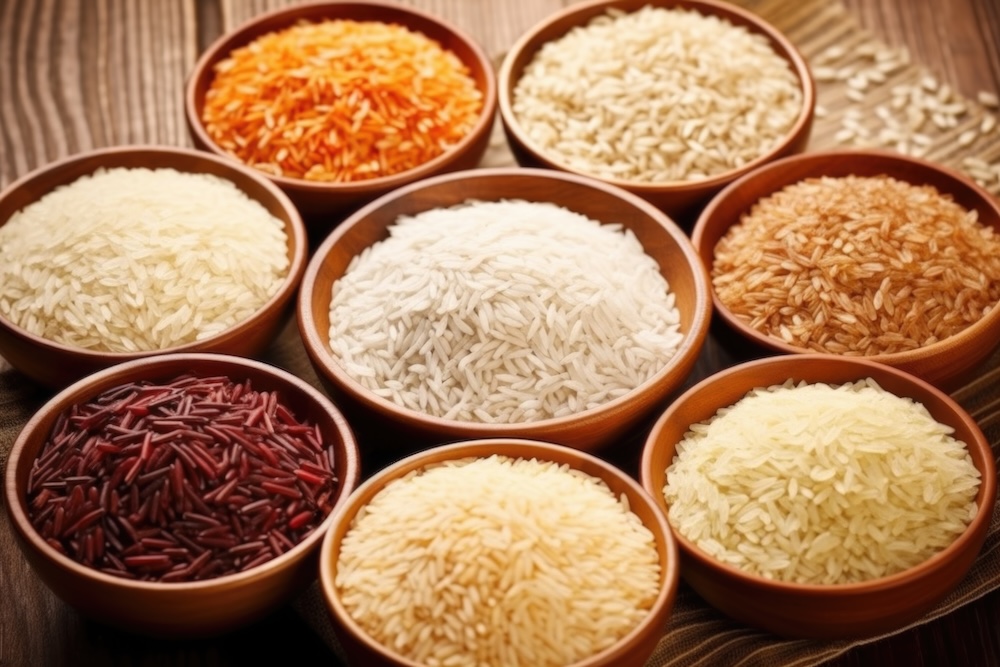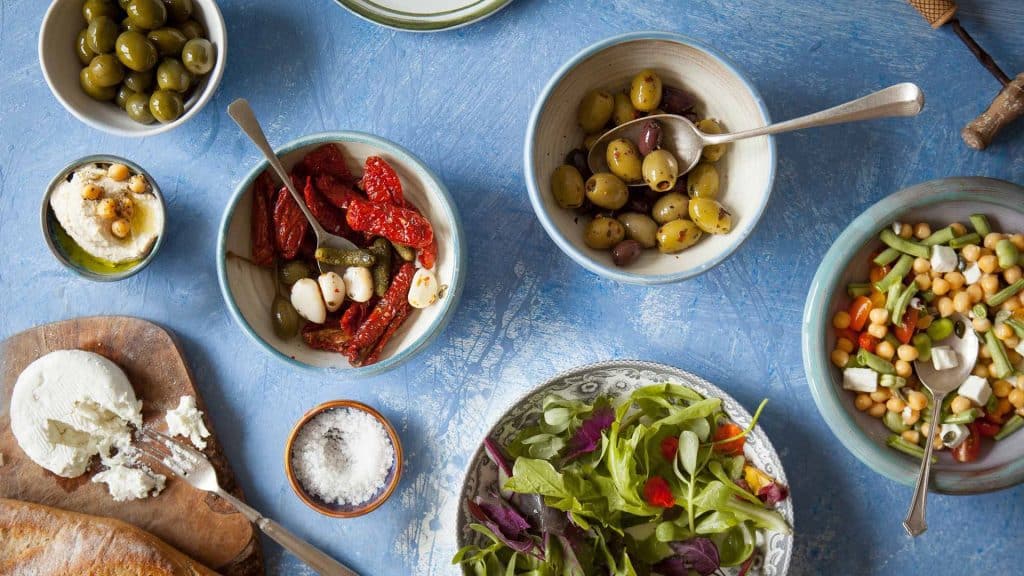
Your Ultimate Guide To Mediterranean Food
You’ve probably heard that a Mediterranean diet is very healthy, with talk about its various benefits for your body coming up a lot online.
You’ve probably also been encouraged to add Mediterranean foods to your regular diet.
But, what is Mediterranean food?
This type of cuisine focuses on foods such as fruits, vegetables, dried spices, and healthy oils.
However, Mediterranean cuisine encompasses many geographical regions in Europe, Africa, and Asia, such as Italy, Spain, Greece, Egypt, Syria, and Turkey.
With that in mind, let’s explore the Mediterranean geography, culture, and cuisine.
What Is Mediterranean Cuisine?
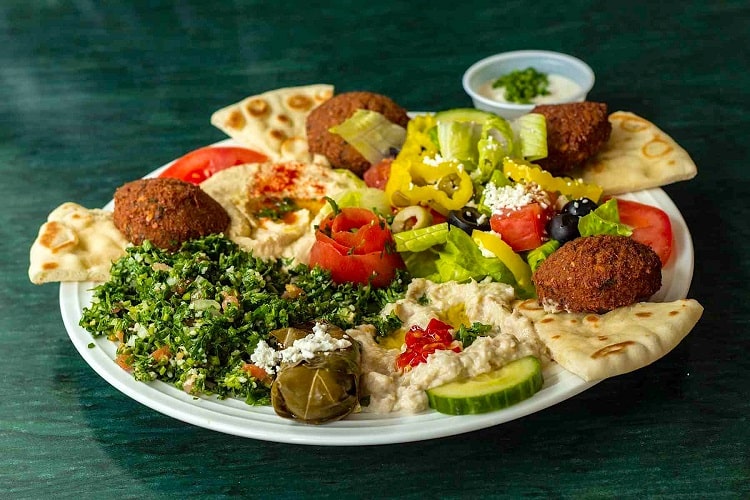
There are different ideas about Mediterranean identity. It contains a variety of nationalities, ethnicities, cultures, traditions, languages, and norms. The food enjoyed by Mediterranean countries is therefore as diverse as its cultures and peoples.
Mediterranean cuisine is a label for a wide range of culinary trends belonging to people living in the region around the Mediterranean Sea. There are 21 countries that are considered to be Mediterranean!
Historically, the different cuisines were influenced by two main factors: the cultural exchange and conquest.
Cultural Exchange
Since the Mediterranean Sea was bordered by the world’s earliest civilizations and was a major intersection between Africa, Asia, and Europe, it became a trading hub.
Traders could easily exchange cultural items, such as spices, which influenced Mediterranean cuisines.
Conquest
Different Mediterranean cultures came into contact with each other as a result of civilizations trying to build their own empires. These civilizations tried to overthrow each other, which also led to them trying to instil their own cultures on each other.
This cultural persistence resulted in a blended culture of the conquered and conquering. This altered the culinary practises of countries in the Mediterranean.
What Is Mediterranean Climate And Geography?
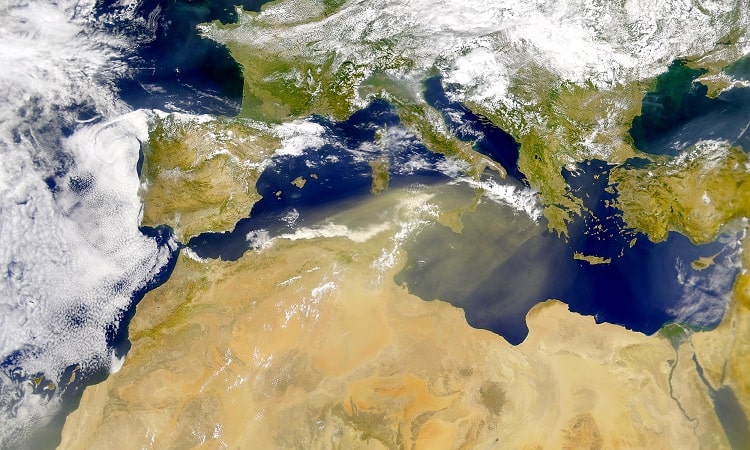
The Mediterranean climate typically includes cool yet humid winters and hot, dry summers. This encourages the growth of crops such as olives, grapes, oranges, and tangerines.
Geographically, the region is home to high mountains, thick scrub, coastal wetlands, grasslands, rocky shores, and sandy beaches.
Three Types Of Mediterranean Cuisine
While there are many different dishes to enjoy in the Mediterranean region, there are some features the different cuisines have in common.
With that in mind, there are three culinary types in this region that we will now explore. These are Eastern Mediterranean, North African, and Southern European cuisine.
Eastern Mediterranean
This cuisine is found in Turkey, Greece, Israel, Egypt, Syria, Lebanon, and Palestine. Common ingredients used in the dishes include yogurt, cheese, and herbs such as parsley, mint, and sumac. Grains are popular, such as pita and lavash, which are two types of flatbread.
Eastern Mediterranean cuisine differs from the rest of the region because it does include meat, such as lamb, poultry, and mutton. These are often used to make kebabs.
Southern European
This cuisine is found in countries such as Spain, Italy, and southern France. Wine features a lot in this cuisine, which varies from other cuisines in the Mediterranean region. It can be used as a beverage or as an ingredient during cooking.
When it comes to meat, pork is featured more in this cuisine, too.
Tomatoes, anchovies, mustard, garlic, capers, pine nuts, and anise are all common ingredients in southern European meals. Grains are also consumed, such as pasta, rice, and leavened breads.
North African
North African cuisine pertains to countries such as Algeria, Libya, Tunisia, and Morocco.
Here, popular spices include saffron, cinnamon, cumin, coriander, cloves, chilies, and paprika. Dried fruit, such as raisins and dates, are also popular.
Grains such as couscous feature in many meat dishes and stews. When it comes to meat, you’ll find that goat, lamb, and mutton dominate, while beef and chicken are secondary protein choices.
Common Ingredients In Mediterranean Cuisine
Although there are different types of Mediterranean cuisine, they do share some common ingredients.
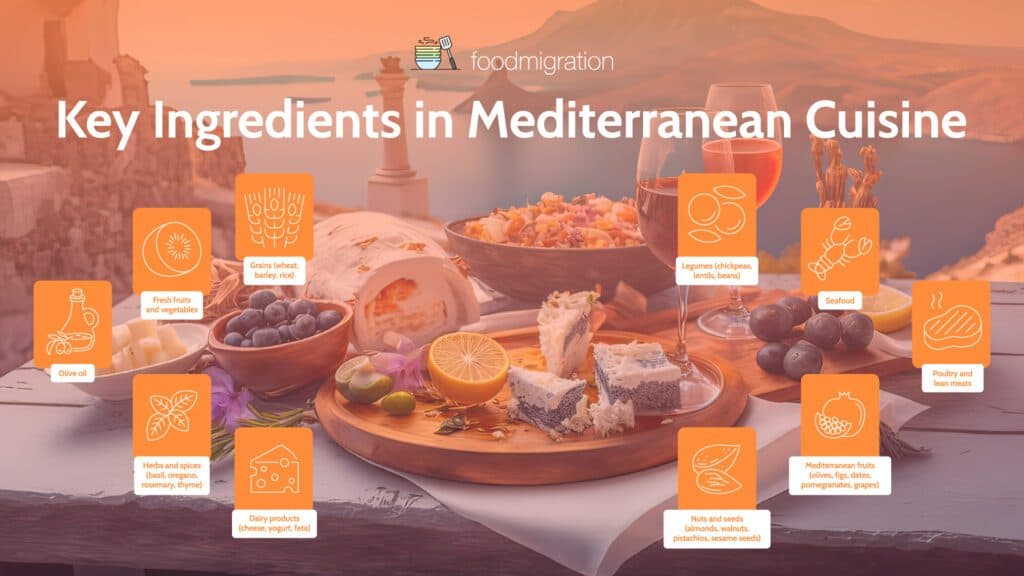
Olive oil
Since olive trees thrive in the Mediterranean region, this oil has found its way into a variety of cuisines. It can be used as a dressing or a cooking ingredient.
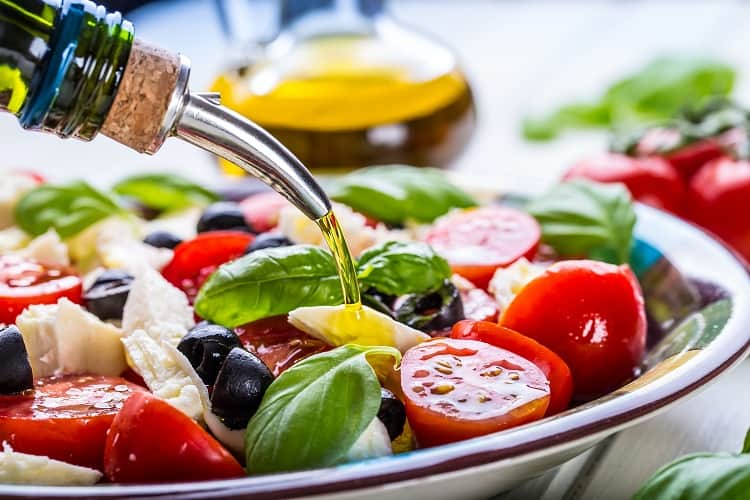
Fresh Vegetables
These are common in Mediterranean cuisines, and include tomatoes, onions, squash, eggplant, and lettuce.
Seafood
Seafood forms part of the Mediterranean diet and is more common than meat as a protein source.
This is as a result of the countries’ close proximity to the Mediterranean Sea.
By comparison, rocky terrain in the region doesn’t accommodate the herding of animals like cows, which reduces the consumption of meat.
Fresh herbs and spices

The use of fresh herbs is common in many Mediterranean dishes. These include basil, thyme, oregano, parsley, fennel, cilantro, and mint. Spices are also essential to cooking, and common spices include black pepper, paprika, saffron, parsley, and turmeric.
Examples of spice blends used in Mediterranean cooking:
- Advieh. This is a Persian blend of dried rose petals and spices such as cloves, cumin, cinnamon, cardamom, and nutmeg. It’s ideal for use in stews and rice.
- Baharat. This is a spice blend used in Eastern Mediterranean cooking. It usually includes cloves, black pepper, paprika, cumin, and cardamom. It brings sweet and savory flavors to meals, so it’s used in soups, rice, and couscous.
- Italian herb seasoning. This is a blend of dried herbs, such as rosemary, basil, and oregano. It’s used in marinades, pasta sauces, and soups.
- Herbes de Provence. This is a French herb blend that contains basil, tarragon, savory, thyme, marjoram, rosemary, and fennel. It’s ideal for use as a dry rub for fish, and it’s also good in vegetable-based dishes.
- Za’atar Spice. This is a blend of herbs, sesame seeds, and sumac. It’s sometimes mixed with olive oil and then eaten on flatbread. It can also be used to season salads, vegetables, and hummus.
Traditional Mediterranean Meals
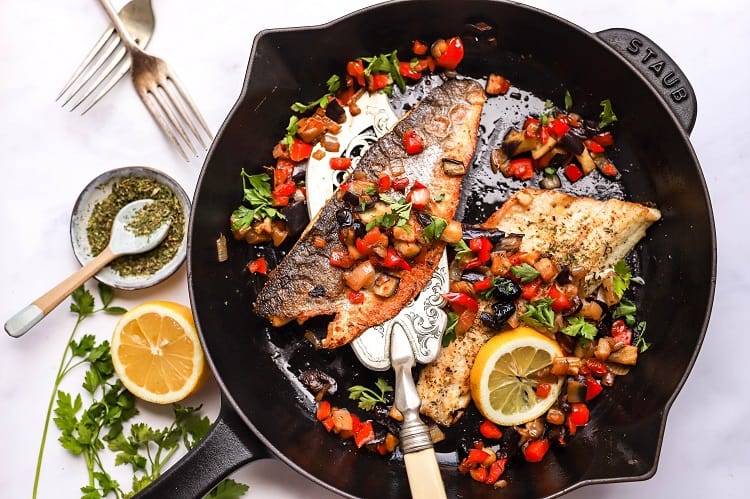
So, based on the above, here are some of the most popular and traditional meals in Mediterranean cuisine.
Baba Ganoush
This Eastern Mediterranean dish is made of eggplant, spices, garlic, yogurt, and tahini.
It’s usually served before dinner as an appetizer, but it can also be used as a dip or eaten with sandwiches.
Hummus
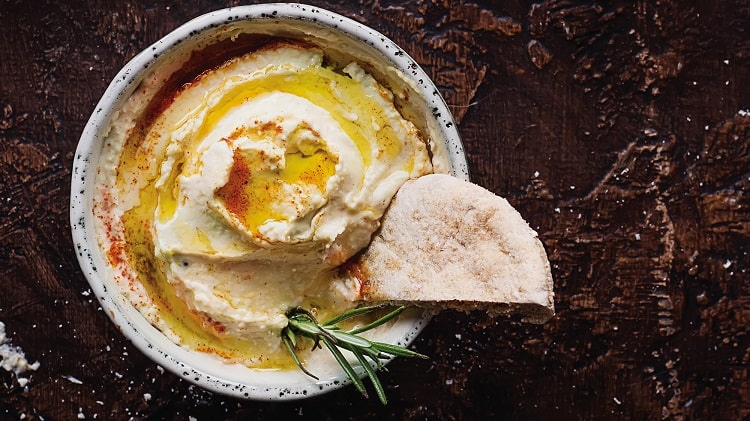
This is another popular Mediterranean appetizer.
It’s made with olive oil, ground chickpeas, lemon, garlic, and sesame seeds. It can be enjoyed in a variety of ways, such as with vegetables or bread.
Salad
There are many healthy Mediterranean salads to enjoy.
These include Greek salads with feta cheese, fresh tuna salads, zucchini salads with fresh balsamic, and potato salads.
Paella
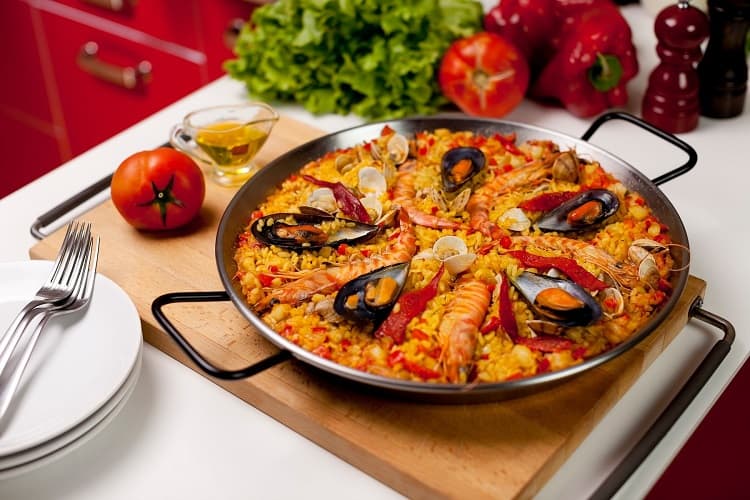
This traditional Spanish dish is made with rice and can include ingredients such as shrimp, lobster, chorizo, and chicken.
Since it’s been around for thousands of years, it has many different variations.
Ratatouille
This stewed vegetable meal is very healthy. It contains garlic, tomatoes, onion, eggplant, zucchini, bell peppers, fennel, basil, and marjoram.
It’s a dish that originated in Nice, France, and is a popular summer dish to enjoy.
Baklava
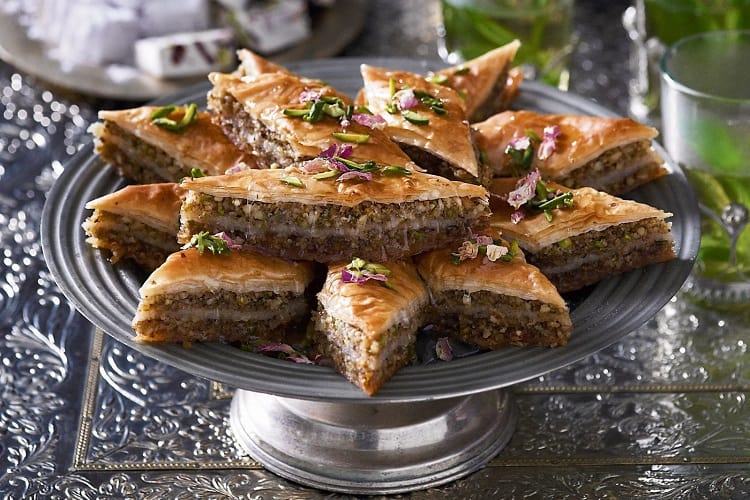
This traditional Mediterranean dessert is popular in Greece and Turkey.
It’s actually a classic Eastern Mediterranean sweet treat that’s made with filo layers and filled with syrup or honey and chopped nuts.
Falafel
While it’s a Mediterranean dish, falafel is common in other parts of the world.
It refers to deep-fried balls or patties that are made with ground chickpeas and/or fava beans.
Moussaka
This is a flavorful dish that’s popular in countries such as Lebanon, Israel, and Turkey. It’s a baked eggplant and ground-meat casserole that’s also famous in Greece.
It traditionally has a base layer of eggplant and olive oil, followed by a middle layer of minced lamb with vegetables, followed by a top layer of béchamel or white sauce.
Moroccan tagine
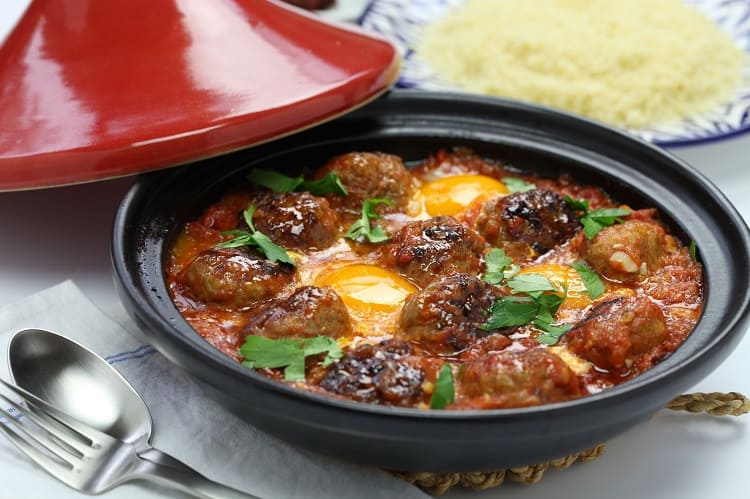
This Mediterranean stew is cooked in a large pot over high heat. It can be made in a variety of ways, either vegetarian or with meat.
It usually combines sweet and savoury flavors, which is what makes it so unique and popular. It’s common for spices such as ginger, cinnamon, and saffron to appear in Moroccan tagine.
You can also get creative with the ingredients, such as by using fruits like prunes or apricots with meat such as lamb.
What Alcohol Is Consumed In Mediterranean Diet?

The Mediterranean diet includes a moderate amount of alcohol, especially red wine. This usually takes the form of one glass of red wine per day.
That said, there are other alcoholic beverages, such as traditional Mediterranean cocktails. Here are some popular ones:
- Agua de València, which combines fresh Valencian orange juice, vodka, semi-sweet cava (Spanish sparkling wine) and gin.
- A popular drink in St. Tropez, France, is Grey Goose vodka, liquor, lemon juice, soda, and elderflower liqueur.
- In Genoa, Italy, sambuca, gin, grappa, and dry vermouth is enjoyed.
- In Lebanon, Israel, and other countries in the Middle East, an anise-flavored alcohol called arak is popular.
- In Greece, ouzo is anise-flavored alcohol that’s made with distilled spirits.
- In Morocco and Tunisia, beer and wine are some of the most popular alcoholic drinks.
Health Benefits Of The Mediterranean Diet
You’ve probably heard that the Mediterranean diet is good for you.
Let’s explore why and what health benefits it has to offer.
It’s Maintains A Healthy Blood Sugar
Since the Mediterranean diet consists of nutritious foods such as whole grains, vegetables, and heart-healthy fats like olive oil, studies have found that it stabilizes blood sugar levels while protecting one against health conditions such as diabetes.
It Reduces Your Risk of Developing Alzheimer’s
One study noted that there’s encouraging evidence that following a Mediterranean diet is linked to improved cognition and this slows down cognitive decline and can also reduce one’s chance of getting Alzheimer’s disease.
One of the Mediterranean ingredients that contributes to a healthier brain is omega-3 acids which are found in seafood. The researchers in the study mentioned that these acids have a beneficial effect on the brain’s cognitive function.
It’s Good For Your Heart
Those healthy oils, like olive oil, we mentioned earlier aren’t just good for maintaining a healthy blood sugar.
They can also boost heart health. In a study, researchers monitored 7,000 men and women in Spain who had a high risk of cardiovascular disease or type 2 diabetes, and they found that people who followed a Mediterranean diet with extra-virgin olive oil or nuts in it had a 30-percent lower risk of experiencing heart issues.
It Can Protect You Against Cancer

There has been research conducted to find out if a Mediterranean diet could protect your body against cancer.
A review of 83 studies claimed that since people following this diet eat lots of fruit, whole grains, and vegetables, these are said to protect against cancers such as colorectal and breast cancer.
Another study found that women who consumed this diet and added extra-virgin olive oil to it had a 62-percent less risk of developing breast cancer as compared to women in the control group who followed a low-fat diet.
It Gives You Healthy Antioxidants
The Mediterranean diet is filled with foods such as nuts, fruits, and vegetables, all of which contain healthy antioxidants that fight free radicals which are linked to age-related health conditions.
Antioxidants reduce oxidative stress damage to telomeres, the ends of chromosomes, and this damage is a hallmark of aging. People who eat a Mediterranean diet regularly have a longer telomere length, which is an important indicator of increased life expectancy.
It Reduces Your Risk Of Stroke
A study in the UK found that eating a Mediterranean diet reduces your risk of suffering from a stroke. This was found to be the case for people of different cardiovascular health profiles.
Another study found that choosing a Mediterranean diet can prevent up to 30 percent of strokes, heart attacks, and deaths from cardiovascular disease in people who are at a high risk of such conditions.
It Keeps Your Blood Pressure At Healthy Levels
Having healthy blood pressure is important as high blood pressure is linked to a variety of health conditions, such as the thickening of arteries that can cause a heart attack or stroke.
Research has found that following a Mediterranean diet can improve cardiovascular health by reducing blood pressure as well as arterial stiffness.
This makes sense, as a diet containing healthy foods such as fruits, vegetables, fatty fish, and lentils all contribute to a healthier blood pressure. Research has found that specific nutrients, such as potassium and magnesium, can also reduce blood pressure.
Potassium is found in foods such as bananas, dried fruits, avocados, and lentils. Magnesium can be found in foods such as whole-grains and dark, leafy greens.
Who Should Follow A Mediterranean Diet?
Anyone can follow a Mediterranean diet, as it has many health benefits.
If you have a health condition, such as cardiovascular disease, it’s also beneficial to follow this diet because it can help to reduce symptoms and complications, as we’ve seen in this article.
A Mediterranean diet is also a good idea for people who have dietary restrictions, such as being vegan, vegetarian, or lactose-intolerant. This is because there are a variety of different foods and ingredients in the diet that you can use to customize your daily meal plan.
This type of diet isn’t restrictive – there are many carbs, proteins, fruits, vegetables, and healthy fats to enjoy!
Things To Be Aware Of With The Mediterranean Diet
Although a Mediterranean diet is healthy, there are some important things to be aware of so that you ensure you get the most health benefits from it.
It Encourages You To Follow An Exercise Routine

The Mediterranean diet is one that encourages regular physical activity. This has many benefits. For starters, if you want to follow a Mediterranean diet because you want to lose some weight, incorporating physical activity can help you achieve your goal.
Similarly, when you exercise regularly, you’re more likely to choose healthier food to eat throughout the day.
It’s Not Restrictive, So Don’t Limit Yourself
The Mediterranean diet is a great choice for reaping health and weight-loss benefits because it’s not restrictive.
You will get to enjoy a variety of delicious foods. The protein-rich and fiber-rich foods in a Mediterranean diet, such as nuts, cheese, and fish, all help to keep you feeling satisfied.
It Must Include High-Quality Foods
As with any type of diet, you need to ensure you consume high-quality foods as these will contain more nutrients and enhanced flavors.
For example, when buying eggs try to choose pasture-raised varieties. This is because pasture-raised chickens search for their own food and this increases the health and nutrition of the eggs they produce.
It Might Be Difficult For You To Start
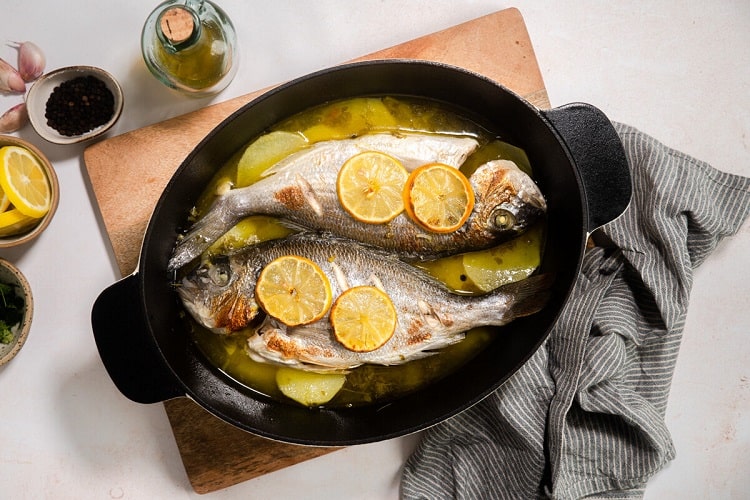
Although the Mediterranean diet is not restrictive, it might feel like it is if you’re used to eating fast food or packaged foods.
You will have to purchase fresh foods from the supermarket and cook meals instead of ordering them to ensure that the food you consume is healthy.
Therefore, you might need a bit of time to make the Mediterranean diet a part of your life.
How To Start A Mediterranean Diet
Ready to start following a Mediterranean diet? Here are some important tips to follow that will help you get started.
- Focus on plant-based foods. These are integral to a Mediterranean diet, so get into the habit of planning meals around plant foods. These include fruits, vegetables, whole grains such as brown rice, oats, and quinoa, pulses, seeds, and nuts.
- Add healthy oils. While you might think of eating more extra-virgin olive oil, you should also add other healthy oils to your regular diet, such as nut oils and avocado oils. It’s also a good idea to swap butter for healthy oils when cooking so that you reap the benefit of lower cholesterol and therefore improve your heart health.
- Eat seafood twice a week. This can include mussels, shrimp, salmon, sardines, and tuna.
- Reduce your consumption of meat. If you still want to prepare meat in your diet, you can – but try to substitute it for fish on some days. It’s also good to add meat to plant-based meals instead of making meat the main focus of them.
- Reduce your consumption of refined grains and sugar. These are usually avoided on a Mediterranean diet as they contribute to oxidative stress and inflammation in the body.
- Include other sources of protein. Since you’re reducing meat consumption, you will have to ensure you add enough protein to your diet. The Mediterranean diet includes protein such as eggs, chicken, turkey, cheese, and yogurt. While these can be consumed daily or weekly, you need to eat them in moderate portions.
- Choose smart dairy. It’s easy to think dairy can be healthy in any shape or form, but this isn’t the case. Dairy products can contain high amounts of sugar, such as yogurt, so it’s important to buy the healthiest kind. For example, choose plain Greek yogurt and avoid flavored yogurt products.
Related Questions
Is eating too many healthy fats bad?
While good for you in moderation, you should avoid too many healthy fats, such as nuts and avocados, as they contain calories. You should ensure you don’t derive more than 10 percent of your total calories from fat.
Why is extra-virgin olive oil better?
Extra-virgin olive oil is the least processed type of olive oil. This means that it preserves its vitamins and antioxidants, both of which are lost during processing.
Conclusion
Eating a Mediterranean diet can help you stay healthy or boost your health, and the good news is that anyone can incorporate this diet into their lives.
In this article, we’ve featured tips to help you get started and provided you with information about the varied and delicious Mediterranean cuisines.
Sources:
- European Commission
- Table Agent
- Spoon University
- Nutrients
- New England Journal of Medicine
- Frontiers in Nutrition
- Nutrients
- JAMA
- News Medical Life Sciences
- Stroke
- The New England Journal Of Medicine
- Hypertension
- VeryWellFit
- NBC News
- The University of Illinois Urbana-Champaign
- Cleveland Clinic
- Healthline
